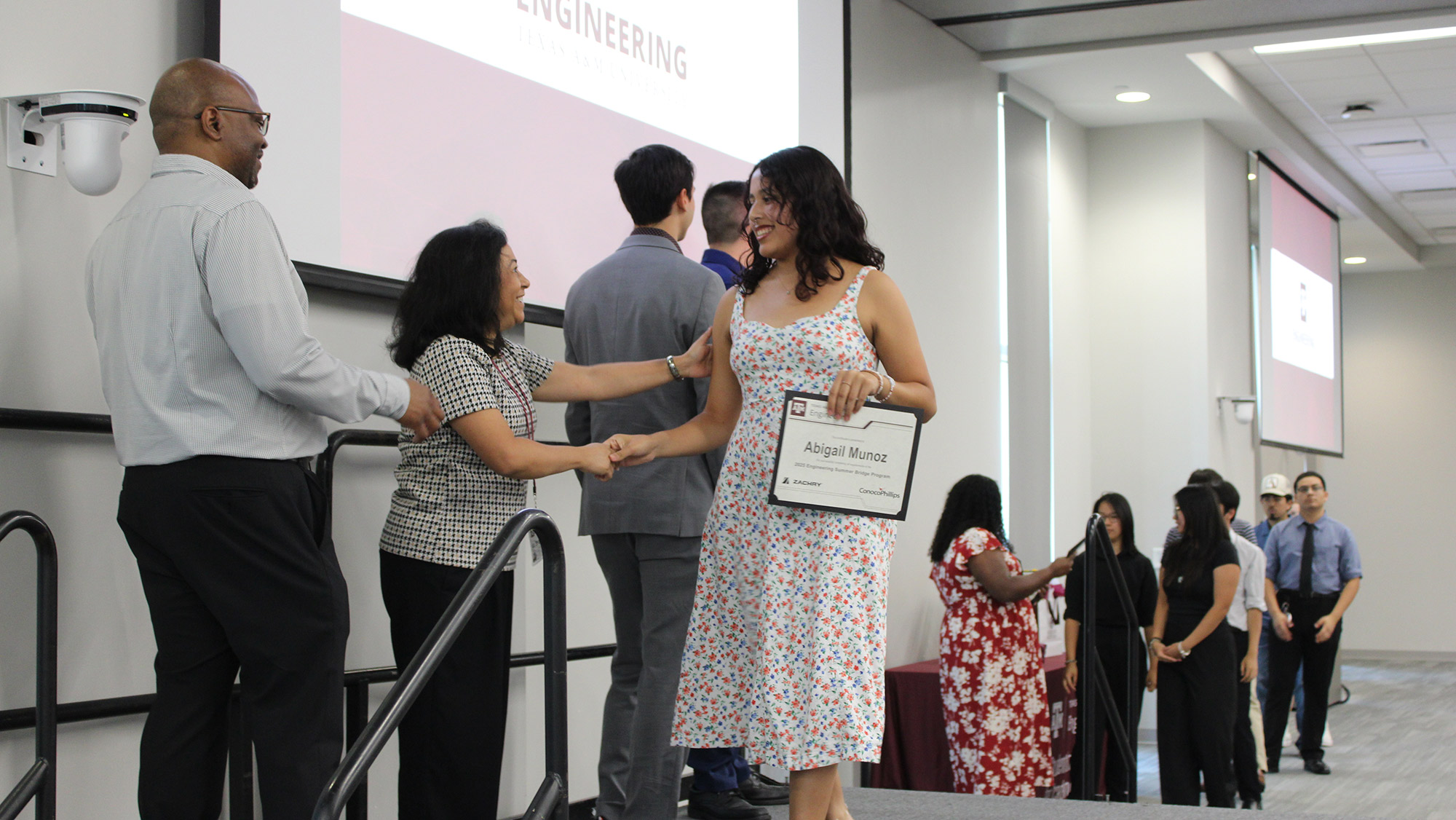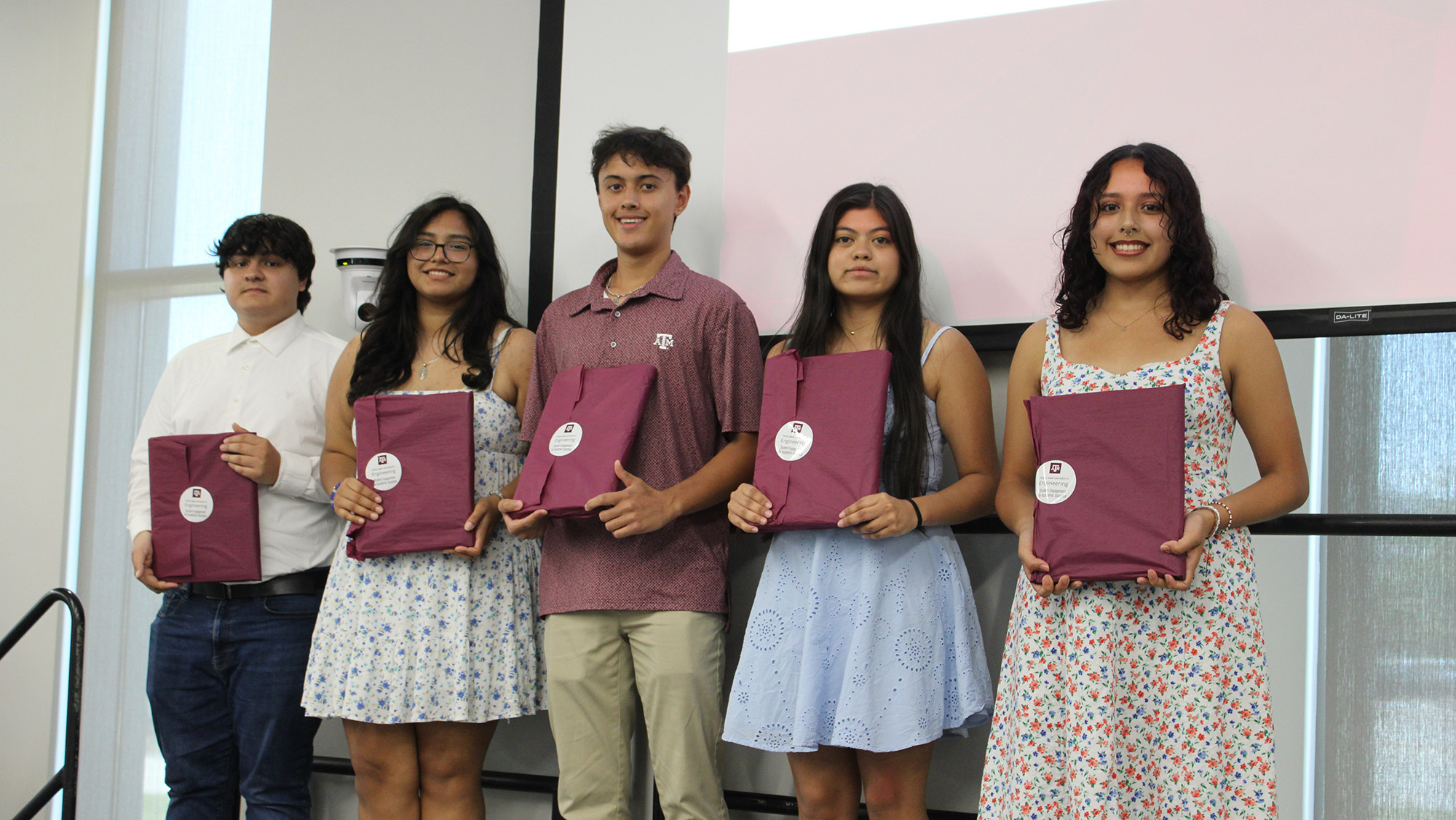
When first-generation students begin college, they’re paving a path for themselves and their future in engineering. Launched in 2016, the Engineering Summer Bridge Program (ESBP) offers first-generation students four weeks of unique experiences, seminars and connections as a launching pad for excellence in their engineering education.
ESBP hosted 68 incoming freshmen on campus for four weeks this year, equipping them with valuable resources and campus know-how. Starting in the middle of summer and ending a few weeks before the fall semester, the students stay in residence halls on campus and make connections with faculty and peer mentors.
This year’s ESBP was made possible by the generous support of David Zachry ’85 and ConocoPhillips. Since the program’s start nine years ago, Zachry has generously supported the program.
“Zachry's support for the Summer Bridge Program stems from our belief in the power of early academic engagement. Seeing students gain confidence, build community and develop foundational skills before their first semester begins has consistently reaffirmed the value of this initiative,” said Zachry ’85, chief executive officer of Zachry Corporation. “It’s not just about preparing them for coursework — it’s about setting them up for lifelong success.”

Through ESBP, ConocoPhillips is helping these students pave a better path for their education and future as engineers.
“At ConocoPhillips, we recognize the value of early enrichment programs, like the Summer Bridge initiative, in helping students build confidence and preparedness as they transition from high school to college,” said Michael Hatfield, chief technology officer and senior vice president for Global Technical Functions. “These experiences lay the foundation for academic success and future innovation. We’re proud to have supported the Summer Bridge Program at the College of Engineering to help strengthen the future workforce and empower tomorrow’s innovators.”
Traditionally, students are guided through the beginning of the mathematics course they’ll be taking in their first semester, allowing them to grasp college-level concepts and structures gradually. In addition, this year’s program introduced a new Python programming seminar, which was directly inspired by a focus group of past participants and peer mentors who voted unanimously for Python programming as the most desired new course preparation for incoming students. These experiences will serve as valuable preparation for the most common first-semester challenges.
According to the Assistant Director of Student Engagement for Academic Success (SEAS) Program and liaison to ESBP Danisha Stern ’12, the program's effectiveness is demonstrated by its impact on academic readiness.
“Participants increased their scores on the Math Placement Exam (MPE) by an average of 7 points, a key measure of success for our program,” Stern said when reflecting on the most recent cohort.

The program’s power reaches beyond the students and is also an impactful experience for the student mentors in the program. Computer engineering junior Luis Galvan ’27 was in the program as a student and has spent two years as a mentor. His experience in the program helped him relate to his mentees and better help them in their transition.
One of Galvan’s favorite memories from this summer came at the end of the program when his mentees took a MPE to measure their progress. To give his students some enticing motivation, Galvan made a bet with them that if at least three students matched or got higher than his previous MPE score, he would let them shave his head. When the scores returned, Galvan stuck to his promise and shaved his head — he had never been prouder.
“[My mentees] are very special to me,” Galvan said. “I was very happy when the first one finished, and they actually got a really high score…I teared up a little bit.”
At the end of their four-week stint, the participants, sponsors and staff came together to celebrate the completion of the program. And although the summer ended, students moved into the semester feeling empowered and eager for the road ahead.
“We're excited to continue tracking their progress as they work toward becoming the next generation of Aggie Engineers,” Stern said.
How to Give
Endowments supporting the students in the college have an immeasurable impact on their education. If you are interested in supporting the College of Engineering and its departments or would like more information on how you can give, please contact one of our development officers.